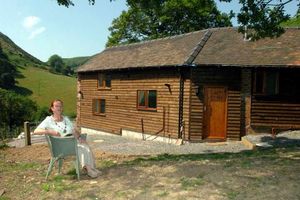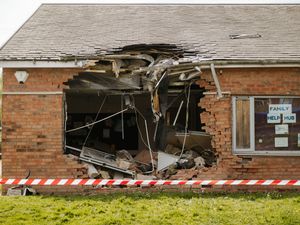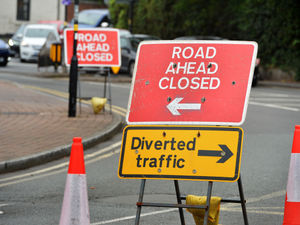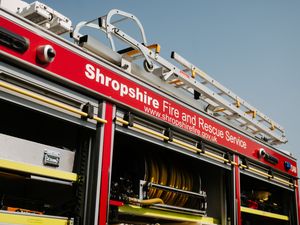Memories of youth hostelling holidays
Forget what you think you know about youth hostels, says Ben Bentley.

Forget what you think you know about youth hostels, says Ben Bentley.
To the uninitiated, it sounds more like jail: metal bunk beds, itchy blankets and wardens who enforce compulsory chores like making you peel a mountain of spuds before lights out.
It's amazing, then, that youth hostels manage to evoke such wildly enthusiastic memories, but they do – mainly because they represented places of adventure and escape in the countryside.
Established in Germany in 1909, the youth hostel movement is now celebrating its 100th year and is still serving the same purpose for which it was originally set up – to offer cheap access to the country life, particularly for people from the city.
School field trips to the middle of nowhere invariably used youth hostels as their base and Shropshire, a getaway destination from the urban sprawl, has boasted some of the best youth hostel escapes in the country.
Helen Porter, 59, who works for the Institute of Rural Health at Tregynon, near Newtown, first went youth hostelling in her teenage years.
"I have got fond memories – I remember the itchy blankets but the benefits are great," she says.
"You meet lots of interesting people, especially now with international youth hostels, and because you eat communally there's a great social aspect. And of course, there's doing your duties."
Ah yes, your duties. Your worldly chores. The character-forming washing out of the loos.
"I've heard youth hostels have now been upgraded, but I was shocked to hear they don't have to do the morning tasks we used to have to do such as washing the porridge pans and cleaning the toilets. That was the zen of hostelling. It's a shame they don't make you do that any more.
"They have more families at youth hostels now, but when I did it, it was men in one dorm and women in another. It was very monastic."
The Youth Hostel Association ethos of encouraging folk to visit the countryside certainly worked for Helen, who at the time lived in London and would regularly flee to the great outdoors.
"Because there was such a network of youth hostels you could walk from one to the next. You weren't allowed to go by car to them in England and there was this thing of whether you had left your car around the corner."
Alan Reade, a civil engineer who lives in Claverley, was a keen youth hosteller and recalls how, as a 12-year-old in August 1953, he and his brother cycled from home to Criccieth for their usual family summer holiday.
"We went along the A5 through Shropshire and North Wales to Capel Curig where we turned left for Beddgelert and Tremadoc," he says.
"We broke the journey at Cynwyd YHA youth hostel, just south of Corwen in Denbighshire. My memory of the hostel is a bit vague, but I do recall that the place was run to strict rules, all the members staying there were quiet, polite and well-behaved, and the warden was welcoming and kind.
"There was absolutely no bad or suspect behaviour of any sort. Everyone was self-sufficient and individually motivated. The fee to stay was a couple of shillings only and the place was a clean and tidy home from home."
"The whole journey, and the return two weeks later, was accomplished without hindrance, upset or fear. I recall that our parents passed us in the car in the Aberglaslyn Pass on the outward journey and at Oakengates on the way back.
"It seems like a lost world, when children could, by and large, be allowed to go anywhere and fend for themselves, and the YHA hostel system gave them a basic, safe, warm haven for the night along the way for a nominal sum in payment."
Youth hostelling has changed in recent times, however, and these days bases have all the creature comforts of budget hotels for urban escapologists.
A trip to Coalport YHA in the heart of Ironbridge's World Heritage Site is eye-opening. Where are the wardens dishing out the chores?
Where is the 6am wake-up call and the bleary-eyed breakfast making? Why are there as many mature ramblers as there are exuberant youths?
These days it is run not by a warden but by a manageress by the name of Cath Young. Like many YHAs, the one at Coalport has undergone a transformation and after being closed for five months it now has en suite bathrooms, wi-fi internet access in the rooms, state-of-the-art kitchen facilities and even family rooms.
Despite this, the youth hostel ethos remains the same today as it was when the movement was established 100 years ago.
"In many ways it has not changed," says Cath.
"The curtains are a bit snazzier and it's got central heating but at the core its principles are the same."
That is, getting people into the great outdoors.
"Most kids that stay here have never stayed away from home and it's that first bit of independence," she continues.
"We get schools coming here with less than half an hour's travelling time, but it's a million miles away for them to see ducklings or a kingfisher, say."
Others come for the YHA "Do It For Real"camps, American-style summer camps where hostellers go quad-biking and paint-balling.
Cath also manages the YHA at Coalbrookdale which during the week is occupied by schoolchildren on field trips but which at weekends can be hired out in its entirety.
"We rent it out as a self-catering cottage for 52 or 74 people," Cath explains.
"Wedding parties or anniversary celebrations might be based there."
A number of Shropshire youth hostels have closed in the past 10 years, however, including Woodlands in Shrewsbury and another near Clee Hill.
At the same time, new ones are opening. The Bunkhouse youth hostel at All Stretton is a stylish barn conversion with underfloor heating – more like home from home with accommodation for 10 guests.
Mike Goode opened it in 2006 after doing plenty of youth hostelling of his own.
"I used to use them as a kid and it's absolutely true about the morning tasks, the spud-bashing and cleaning the floors. It was all interesting.
"And if you had heating at all you were doing well," he says, pointing at the underfloor heating at the Bunkhouse.
Church Stretton remains a favourite destination for archaeologists and geologists and for school field trips, but Mike adds: "We get fell runners, mad cyclists and those going from Land's End to John O' Groats – it's a real cross-section."
The youth hostel experience has been part of a young person's rite of passage over the last century and John Hughes, of Shropshire Wildlife Trust, has tough but tender memories of the old system.
"It figures that the youth hostel movement was started in Germany because my memories of them was quite Teutonic," he says.
"I recall stating in a youth hostel in Whitby and remember we slept in bunk beds in dorms. It was quite utilitarian, but my main memory is getting food poisoning and and throwing up on the North Yorkshire Moors at Fylingdales Station, an early warning station. It was character building, I feel.
"When I was young, I did not have any money and youth hostels were cheap and meant you could go to places and see fantastic bits of the country you might not otherwise see."
Shropshire Youth Hostels





